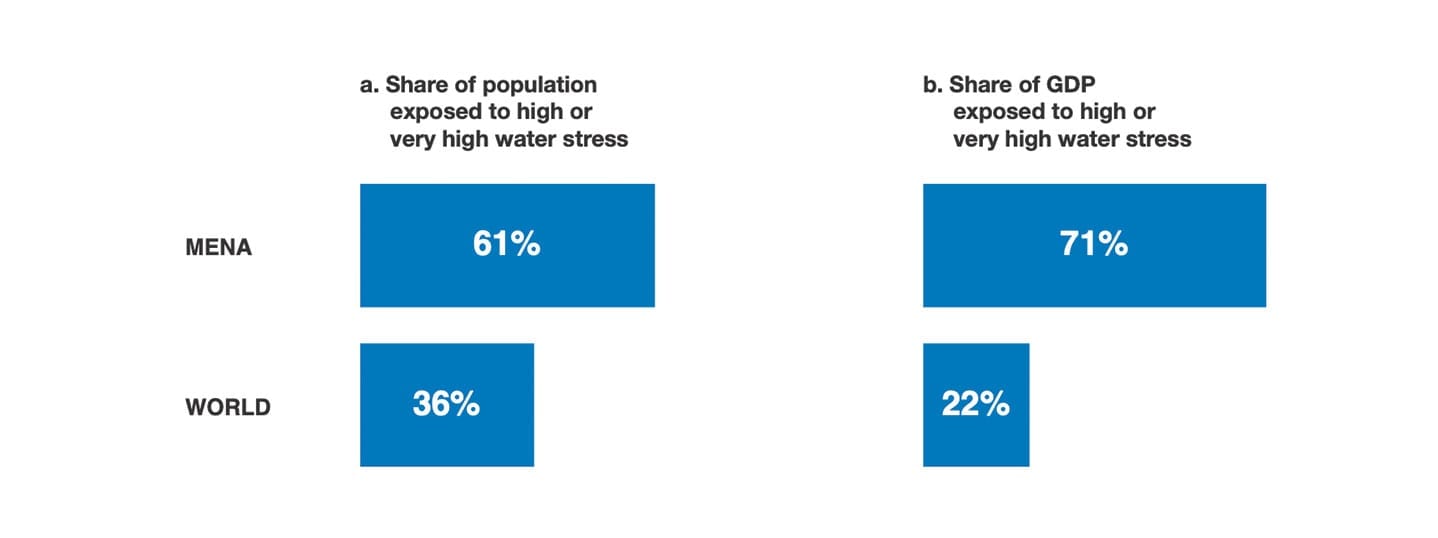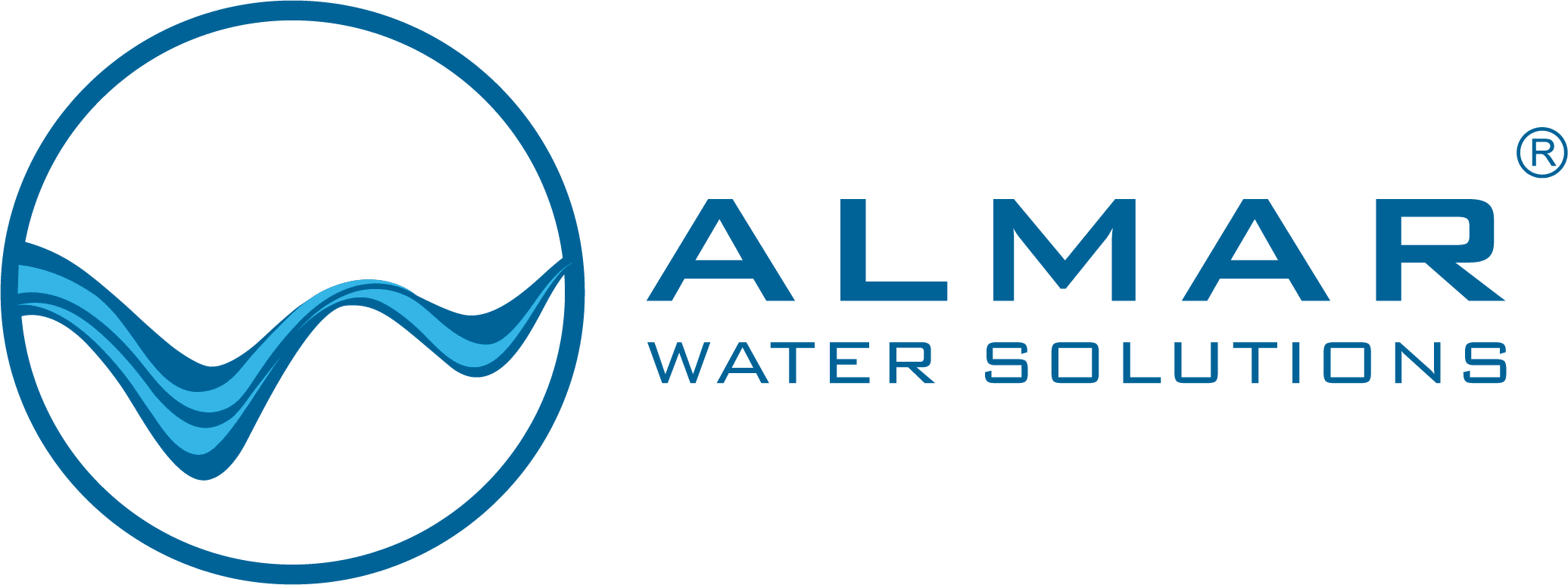Almar: Deploying Water Solutions Globally
2019 has been an important year for Almar Water Solutions. After three intense years of work, in this last year, the company has consolidated its portfolio of projects with the addition of two contract awards in Saudi Arabia and Kenya, an acquisition in Bahrain, a strategic agreement in Egypt and the acquisition of a water treatment company in Chile. More water work is underway to continue Almar Water Solutions’ expansion plans in 2020. The Middle East and North Africa (MENA) is the world’s most water-scarce region. Water stress in MENA is greater than in any other region of the world and their natural resources, in addition to being the most scarce, are also the most variable and unpredictable.
According to the latest data available from AQUASTAT, the average of water resources worldwide is 7,453 m3 per person per year, while in the Arab region it is just 736 m3. In addition, per capita water scarcity has been increasing and will continue this trend due to population growth and the consequences of climate change, contributing to groundwater depletion, the loss of farmland for agricultural production and the displacement of people due to the lack of water resources.
It is for this reason, and as a result of the location of its parent company, Abdul Latif Jameel, that Almar Water Solutions is focusing its efforts on developing new water infrastructure in areas such as the Middle East and Africa.
Hosting 6% of the world’s population, the MENA region has just 1% of the world’s freshwater resources. This means that unconventional water sources (desalination in particular) play a key role in the region’s water supply portfolio. MENA accounts for almost 50% of the world’s desalination capacity, and its growth and consolidation have been made possible in part by lower energy prices and technological improvements, which have reduced plant operating costs. Innovations in membranes and renewable energy supply can even contribute to increased adoption of unconventional sources of supply across the area.
Developed by Almar Water Solutions through Abdul Latif Jameel CDC, the Shuqaiq 3 Desalination Project is perhaps the most significant because of the plant’s large capacity, among the largest in the world, and due to how quickly its financing closure was obtained and construction started. With a capacity of 450,000 cubic meters per day of water production, Shuqaiq 3 will supply almost two million people in the region and will be developed under a 25-year PPP model. The project is currently under construction.
Figure 1: Water stress and year-to-year variability in surface water, by world region

Note: Water stress measures total water withdrawal as a percentage of total surface water availability. It does not account for dependence on transboundary water sources or nonconventional water sources. Year-to-year variability measures the percent deviation from mean annual surface water availability.
Last October, Almar Water Solutions, together with representatives from Abdul Latif Jameel, held the ground-breaking ceremony at the location chosen for the plant’s construction, on the shores of the Red Sea, approximately 137 kilometers to the north of Jizan, in Saudi Arabia. That same month, the project received the “Utilities Project of the Year” award at the 2019 Middle East Energy Awards held in Dubai, making it one of the most emblematic projects in the region.
Another one of the projects awarded in 2019 was the first large-capacity desalination plant in Mombasa, Kenya. Located in the North Mainland area of Mombasa County, the project will provide drinking water to more than one million people. The plant will be managed and operated for 25 years, until it is handed over, and is currently in the financial closure process.
Sub-Saharan Africa is a region that poses significant challenges in the water industry due to its population growth, advances in economic development and the severe effects of climate change. Desalination is an unconventional source of water that will help to alleviate water stress in the region and will contribute to the progress of its community. In particular, the Mombasa desalination project will alleviate the current water crisis in the county, which has been experiencing interruptions in its drinking water supply for several years.
In 2019, Almar Water Solutions also acquired the stake of Mubadala Infrastructure Partners in the wastewater treatment plant of Muharraq STP Company BSC.
More than half of the wastewater produced in the Middle East and North Africa is not treated, which degrades water quality and increases public health risks in the region. The percentage of wastewater that is treated differs greatly throughout the region, with some countries treating all wastewater and others treating less than 10 percent.
Figure 2: Share of GDP produced and population living in areas of high or very high water stress in the Middle East and North Africa compared to world averages

The Middle East and North Africa accounts for almost 50% of the world’s desalination capacity.
Almar Water Solutions committed to the sustainability and availability of water worldwide, and in MENA in particular, has acquired Muharraq’s state-of-the-art wastewater treatment plant, with a capacity of 100,000 cubic meters per day and a wastewater channeling system, in the Kingdom of Bahrain. With this plant, the company confirms its commitment to increase unconventional water sources in the MENA region, with the aim of supplying both the population and the economic and industrial sectors of the region.
Lastly in MENA and particularly in Egypt, the company set up a joint venture with the public services and investment unit of the region’s leading construction and engineering group, Hassan Allam Holding (HAH), Hallan Allam Utilities, to develop BOT and BOO water projects in the country and acquire industrial assets and O&M service companies, thus consolidating its leadership throughout the Middle East and Africa region.
According to a World Bank study on water security in MENA, since 1990, the Middle East and North Africa region has had some of the best results worldwide in increasing and improving access to water supply and sewerage services. Technological innovations and private sector support and investment are improving water quality and efficiency in areas where water infrastructure was scarce or simply did not exist.

a wastewater channeling system. Photo: Alma Water Solutions.
Hosting 6% of the world’s population, the MENA region has just 1% of the world’s freshwater resources.
Another geography that presents great challenges due to its geo-climatic and structural conditions is Latin America where, in November 2019, Almar Water Solutions acquired the Chilean water treatment company Osmoflo SpA with the aim of starting its third-party operation and maintenance service activities, reinforcing its portfolio with new references in desalination, potabilization and wastewater treatment, and having access to infrastructure development in the region. Almar Water Solutions, with a highly qualified team and extensive experience in MENA and Latin America, is the ideal partner as a specialist in the development, financing and operation of innovative projects that ensure the supply of water for human, agricultural and industrial consumption.
